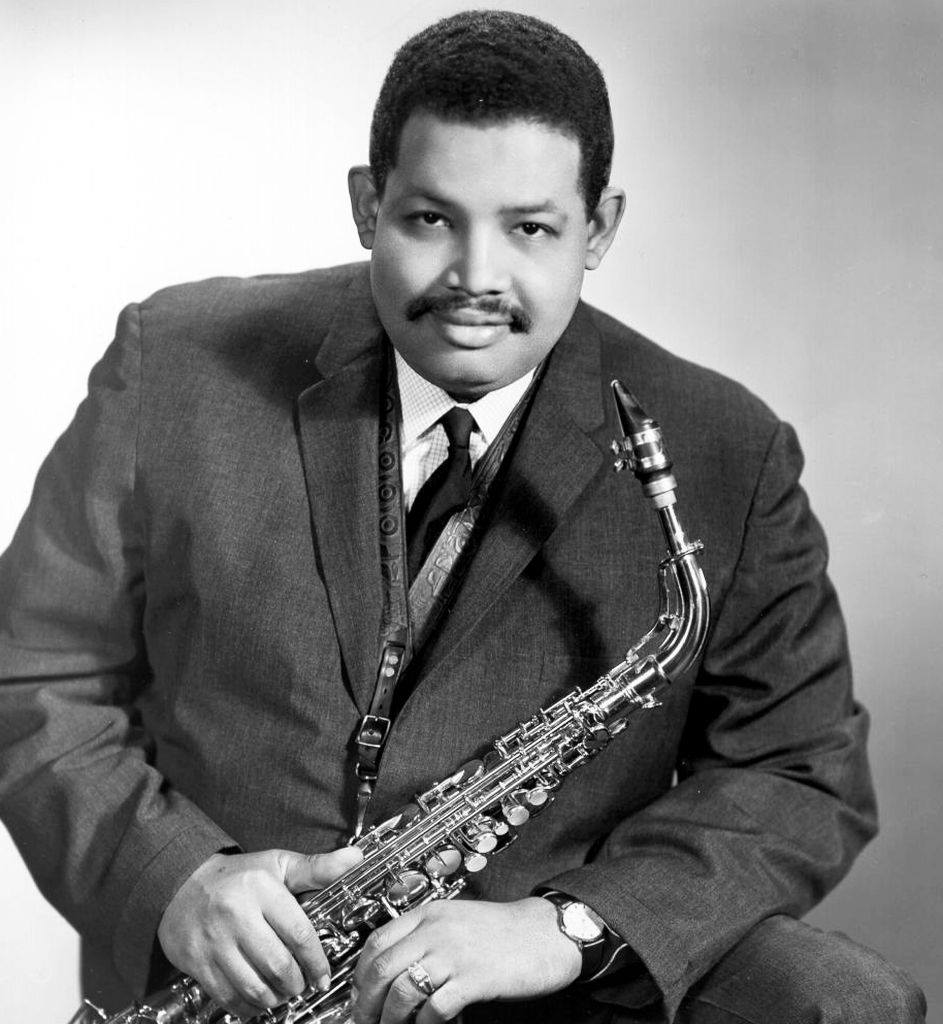Introduction to Cannonball Adderley
Cannonball Adderley was born Julian Edwin Adderley on September 15, 1928 in Tampa, Florida. He died of a stroke on August 8, 1975 and was inducted into the Down Beat Jazz Hall of Fame that same year. He played the alto saxophone and was the leader of his own jazz group. He had only one top 40 hit titled “Mercy, Mercy, Mercy,” recorded on Capital Records in the mid-60s music era, but was very popular as a jazz performer. Cannonball was a member of the famous Miles Davis Sextet before starting his own jazz band named the Cannonball Adderley Quintet. He also performed with many other legendary combos, groups and musicians during his career.
Other Cannonball Adderley hit songs Include: “The Jive Samba” (written by his brother Nat Adderley), “This Here,” “Walk Tall,” “Why Am I Treated So Bad,” “African Waltz,” “Country Preacher,” “Oh Babe,” “Inside Straight,” “One For Daddy-O,” “Elsa,” “Brother John,” “Nancy (With The Smiling Face),” “Dancing In The Dark,” “Bangoon,” “Know What I Mean,” “Bohemia After Dark,” “Willow Weep For Me,” “Spectacular,” “Love For Sale,” “Stars Fell On Alabama,” “Autumn Leaves,” “74 Miles Away,” “Work Song,” “Jeannine,” “Del Sasser,” “Sandbop,” “Kelly Blue,” “Never Will I Marry,” “Bossa Nova Nemo,” “A Foggy Day,” “One For Newk,” and “Save Your Love For Me.” (recorded with Nancy Wilson).
The early years of Cannonball Adderley
The late jazz saxophonist Cannonball Adderley was born Julian Edwin Adderley on September 15, 1928 in Tampa Florida. Adderley and his family relocated to Tallahassee, Florida when his parents were employed as teachers at a university in Florida. With his brother Nat, Adderley had his early performance in the early 1940’s with Ray Charles who used to live in Tallahassee. After graduating with a major in music at Tallahassee, Adderley moved to Broward County, Florida in 1948. There, he worked as a band director at Dillard High School.
Adderley’s stage moniker derived from a tease by his classmates, who called him as “cannibal” due to his gluttony.
Adderley in the recording industry
In 1955 Adderley moved to a neighborhood in Queens, New York named Corona.” Initially he wanted to study at conservatories there. However, fate changed when one night he went to Cafe Bohemia, along with his saxophone. Double bassist Oscar Pettiford asked Adderley to take the place for their saxophonist who came in late for the gig. After that, Adderley became the topic inside New York jazz circuit, saying that he was the heir of Charlie Parker.
In 1957, including his brother Nat, Adderley founded his own act and was subsequently signed to Savoy jazz label. Around that time, Miles Davis noticed Adderley’s blues-rooted alto-saxophone which earned him an invitation to play with Davis. In October 1957, he started playing with Davis and his band, the Miles Davis Quintet.
While still with the Davis and his band, Adderley formed the The Cannonball Adderley Quintet which became unsuccessful. However, after he left the Davis’ act, Adderley formed another band which did quite well. Adderley scored his biggest hit single in 1967 with “Mercy, Mercy, Mercy” which charted at #11 on the pop chart and #2 on the R&B chart. Most of Adderley’s singles gained minor popularity including “African Waltz” (#41 pop, 1961), “Jive Samba” (#66, 1963), “Why? (Am I Treated So Bad), “Sack o’ Woe” and “Walk Tall.”
In 1971, his act had a movie appearance in the Clint Eastwood psychological thriller film Play Misty for Me.
Adderley’s death and legacy
On August 8, 1975, Adderley passed away due cerebral hemorrhage (stroke) in Gary, Indiana, and was buried in Tallahassee, Florida. Later that same year, he was inducted into the Down Beat Jazz Hall of Fame.

